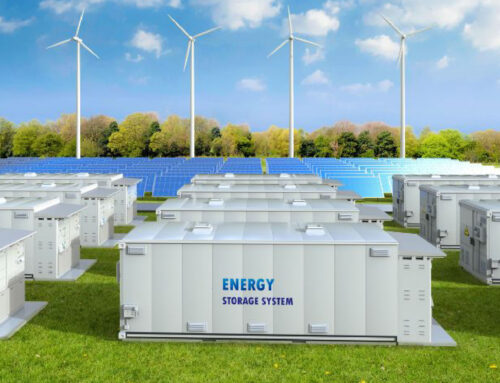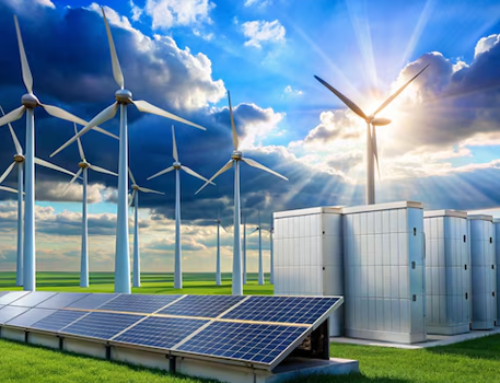
According to industry insiders, the next acquisition of Mukesh Ambani’s Reliance New Energy Solar Ltd (RNESL) will be a battery technology company, as Asia’s richest man wants to complete his armory in the entire spectrum of solar energy business and shatter Chinese hegemony globally.
“If I look at their chessboard, I believe the next in line would go for a battery technology acquisition,” said Ratnadip Bhattacharjee, CEO, and Director of ArrayTech Technologies Pvt Ltd, a solar engineering and design firm.
Then, according to Bhattacharjee, his entire technology circle, which includes solar modules, panels, cells, wafers, and batteries, is completed.
Storage is “one area that has always been a difficulty for the solar industry,” according to an industry adviser.
“Once he has battery technology under his control,” the consultant explained, “he can generate electricity whenever the Sun is available, store it, and supply it according to demand, ensuring that there is no mismatch between production and consumption.”
The electric vehicle industry will also benefit from advances in battery technology.
New energy business
With a flurry of recent purchases, mostly on the technology side, Ambani’s strategy and vision for his venture into the new energy market has begun to unravel.
Bhattacharjee states, “Reliance means putting the pawns in the correct spot.” He explained, “Ambani is purchasing technologies, companies who have good technology in this space.”
Reliance’s strategy of approaching solar as a technology rather than a short-term money-making endeavor or a sideline is energizing the sector.
“Ambani is looking at the company on a global basis, not just in terms of customs duty management, lobbying opportunities, and so on, but as a business in and of itself.”
You can’t battle someone by raising customs duties; he’s taking on China on a global scale. For the Indian component of the business, he is not interested in competing with China,” Bhattacharjee explains.
Apart from Sterling & Wilson Solar Ltd, an EPC firm, Ambani’s new energy play is taking shape with the acquisitions of Norwegian solar cell, panel, and polysilicon maker REC Solar Holdings AS, Germany’s monocrystalline green solar wafers developer NexWafe GmbH, and technology development and manufacturing agreement with Denmark’s Stiesdal A/S for HydroGen Electrolyzers in India.
“In this business, you can survive only if you have technology and scale. Scale is always their strength, scale is not a problem for Reliance to manage. So, he is going after technology. If you don’t have these two, you will only be running after government lobbying for putting some customs duty here or some other levies there because you are never competitive. None of the Indian companies are not only not competitive they don’t even make any decent solar panels compared to Chinese panels and are way behind in technology,” said a second solar industry official.
Aims to be a global player
Using a subpar panel raises the cost of establishing solar plants, and the only way the local business can stay afloat is by enlisting the help of the government.
Not only for India, but also the rest of the world, Reliance is looking at it as a global enterprise. Ambani aspires to be the solar industry’s leading provider. Reliance will require technology and scale to achieve this, as it would not be able to compete on a global scale otherwise.
“The difficulty with the solar sector now is that the vast majority of individuals who understand the technology are in China.” “Getting into China and controlling that technology is tough, so he has chosen the Europeans for technology,” the CEO stated.
In this light, Ambani’s $771 million purchase of REC Solar Holdings AS is considered the start of his assault on Chinese supremacy. Though REC was established in Norway, it was owned by China National Bluestar (Group) Co Ltd, a Beijing-based specialty chemicals and materials firm (Bluestar).
“REC is one of the few module manufacturers outside of China, with good technology but a high price tag. However, if you have the technology, price is a doable issue,” remarked one industry executive.
Solar module technology
Outside of China, there is now very little technology accessible for the manufacture of solar modules or cells, as most companies have gone out of business.
Chinese producers have beaten out all of the world’s top solar module manufacturers. “REC is a really smart selection by Reliance if you are looking for a company with substantial and also some quick production capability as well as manufacturing technology,” he said.
NextWave is a wafer manufacturer with superior technology that is assisting Reliance in expanding its solar technology area, which is based on wafers and cells.
Both are regarded as good bargains because Reliance would otherwise have to go shopping in China, which could be tough for Ambani to find a Chinese company and acquire the technology. “Buying a firm is simple, but obtaining technology in this field is extremely difficult,” the industry executive explained.
The solar sector is characterized by rapid technological advancements.
“In the solar industry, none of the Indian firms have any influence over the technology.” They are, in essence, followers. Because it is a technology game in which one may outsmart the competition. As a result, I think Reliance’s acquisition was well-thought-out.
They are a newcomer to the industry, but they have a greater understanding of the fundamentals of the business than the others,” Bhattacharjee noted.
Click Here for more updates Ornatesolar.com










Leave A Comment